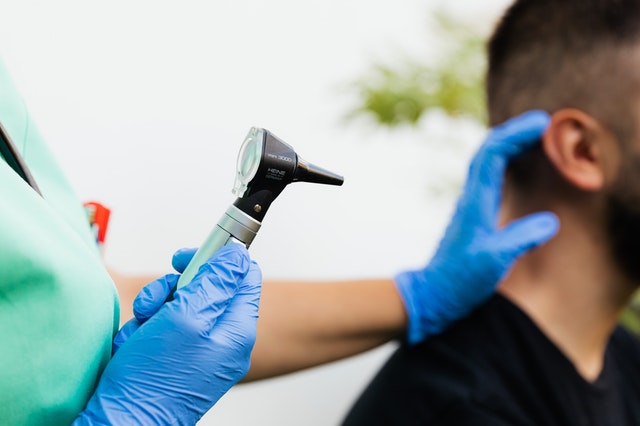One day, you wake up and notice a ringing in your ears. Background noises are muffled and you have trouble understanding when people speak to you from a different room. You knock into furniture that’s usually easy to avoid and you may be unsteady on your feet. What you’re experiencing is hearing loss.
Hearing loss can be difficult to spot in its early stages, partially because it’s been so stereotyped. People think only the elderly lose their hearing or perhaps people who are exposed to loud, traumatic noise levels. Read on to learn five surprising facts you might not know about hearing loss.
1. It Can Happen Early
More people lose their hearing between the ages of 60 and 69 than at any other time. However, 15% of Americans 18 and older have some trouble with their hearing. Almost three out of every 1,000 children are born with some level of hearing loss and one in every eight Americans older than 11 has measurable hearing loss.
This means it’s important to protect your hearing from a very young age. Audiologists recommend keeping earbuds and headphones below 60% and not turning them up to block out background noise. You should also avoid being exposed to loud noises for prolonged periods of time.
2. It’s Linked To Dementia
Studies have also shown that hearing loss in older adults is tied to dementia. According to some research, moderate hearing loss makes it three times more likely that people will develop dementia as they age. This is most likely because people with hearing loss tend to withdraw from social situations.
Hearing stimulates the brain to process information and engage with others. When your brain loses its ability to connect with others, it may be more challenging to stay healthy and active on a neurological level. Of course, loss of hearing doesn’t guarantee dementia – there are many people in the deaf community who stay healthy during their golden years.

3. It May Signal Diabetes
Surprisingly, hearing loss may be an early indicator that you have diabetes or prediabetes. Again, hearing loss doesn’t always mean you have diabetes, nor do all diabetics lose their hearing. However, people with prediabetes are 30% more likely to develop hearing loss than their non-diabetic peers.
People suffering from diabetes have trouble naturally balancing their blood sugar. They have too much sugar in their bloodstream, which can lead to inflammation throughout the body. Although research is still ongoing, some specialists believe this inflammation can damage the delicate inner ear and cause loss of hearing.
4. It’s Connected To Balance
Balance is closely connected to the healthy functioning of your inner ear. The canals of your inner ear are filled with fluid and tiny hairs which send signals to your brain about the position of your head. Other organs in your inner ear contain calcium crystals that help your body handle acceleration.
People tend to get motion sickness when their inner ear is telling them something different from their other senses – like riding in a plane, for example. However, as people age, they naturally lose hairs from their inner ears. The same conditions that affect balance can sometimes also affect hearing loss. This is why older adults are more prone to falls.

5. It Appreciates Support
Many people are afraid that getting hearing aids will make their natural hearing worse. Sometimes it can feel this way because your body gets used to having the help of hearing aids. Without them, you may not have noticed how poor your hearing was on its own. Once you’re used to sharper, clearer sounds, it can be hard to go back.
However, hearing aids that are properly fitted and adjusted to you, along with the best deaf phone app, will not cause more damage to your hearing. In fact, they can actually help your body maintain its current level of hearing by continuing to stimulate your brain with sound. To protect your hearing, you shouldn’t wait until you’re desperate to invest in hearing aids.
Hearing Is A Gift
It’s easy to take your hearing for granted. However, many people experience hearing loss at a young age. It’s important to proactively care for your hearing by turning down loud music and avoiding loud sounds which can damage your inner ear. If you do experience unexplainable loss of hearing, it could be a sign of early diabetes.
Hearing loss in older adults is connected with a higher risk of dementia and potential falls because of a lack of balance. Getting hearing aids quickly can help prevent further hearing loss and help you maintain healthy brain function for the rest of your life.



































